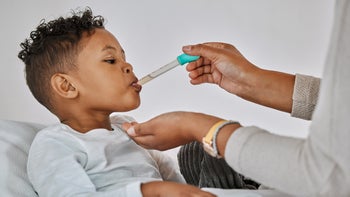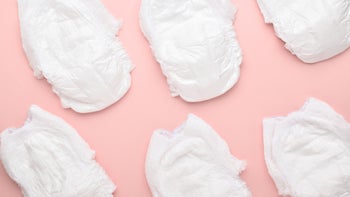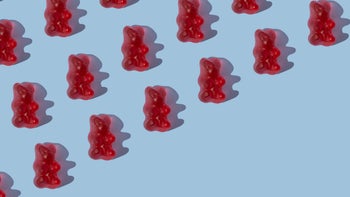
The 5 Best Ways to Soothe Your Teething Baby (And 4 Things You Should Avoid)
Key Takeaways:
Teething may cause mild fussiness in some children. Fortunately, there are some home remedies that can help soothe the pain.
Gum massage and chew toys work well to relieve teething pain. If your baby seems very uncomfortable, over-the-counter pain relievers can help.
Some common teething treatments are not effective and may be dangerous. Talk to your provider to discuss the teething remedies that are safe for your baby.

The teething process is different for every child. Some children don’t seem to be bothered by teething, while others seem quite cranky and uncomfortable. This can often cause parents to look for ways to soothe their teething baby.
Fortunately, there are some remedies that help. But there are other treatments that have been passed down through time that are not safe and aren’t effective at all. Let’s review what you can do to try and soothe your teething baby, and what you should avoid.
Does teething cause pain?
Yes, teething may cause discomfort for your baby. And as a parent, it is a very human response to want to remedy that. In addition to pain or discomfort, teething may also cause symptoms like:
Mild irritability
A very slight increase in temperature (not a fever)
Drooling
An urge to chew something hard
Search and compare options
How can you soothe a teething baby?
Teething can be quite disruptive to your daily routine if your baby is uncomfortable and having lots of symptoms. But there are some treatments that may help soothe your baby. To try to relieve teething symptoms, here are five tips that you can try:
Rubbing their gums: The pressure from gum massage is useful for a teething baby. You can use a clean finger to gently rub the sore gums.
Teething rings: It’s best to use a solid ring made of firm rubber. It can be chilled in the refrigerator, but don’t freeze it. Frozen objects are too hard and can injure the mouth or gums. Besides being too hard, the prolonged cold may injure the gums.
Applying a cool cloth: Chilling a clean cloth may provide comfort for sore gums. Chewing creates pressure against the gums and can help relieve some of the pain.
Teething biscuits: You can give your baby teething biscuits to chew on once they reach 8 to 12 months. To protect against cavities, wipe the gum area and teeth with a clean cloth. As more teeth come in, gently clean them with a toothbrush.
Pain relievers: If your child is very fussy, pain relievers like acetaminophen (Tylenol) or ibuprofen (Advil, Motrin) may be an option. Talk to a medical provider first to make sure pain relievers are safe for your child to use.
What teething treatments should be avoided?
Common products that are marketed for teething can be harmful. To keep your baby safe, avoid using the following products.
1) Teething jewelry
Amber teething necklaces and bracelets are sold as a natural healing product. Amber is fossilized tree resin, and it has reportedly been used for thousands of years. The FDA issued a warning about the safety risks of teething jewelry. In fact, it isn’t a good idea for an infant to wear any jewelry due to the risk of serious injury and death.
Using teething jewelry can cause:
Choking: This can happen if a piece breaks off and enters the child’s throat or airway.
Strangulation: This is a risk if a necklace catches on an object such as a crib.
Injury to the mouth: This may occur if a piece of the jewelry irritates or cuts the child’s gums.
Infection: This is more likely if the gums become irritated or injured.
Read more like this
Explore these related articles, suggested for readers like you.
Amber also contains a chemical called succinic acid, which may be absorbed by chewing on it. Succinic acid is believed to be an anti-inflammatory to relieve teething pain, but there is no scientific evidence to support this.
2) Over-the-counter numbing medicines
There are several over-the-counter medications you can rub on irritated gums. These contain a numbing agent called benzocaine. This used to be an active ingredient in infant teething products until a safety warning was issued in 2018.
You should avoid any teething medication that contains numbing agents like benzocaine. Due to the risk of serious complications, they are no longer approved for infants or children under the age of 3.
3) Homeopathic teething gels and tablets
Although a “natural” remedy, the FDA advises against the use of homeopathic teething tablets and gels. Safety testing found high levels of a toxic plant — belladonna (“deadly nightshade”) — in certain products. And in some cases, belladonna levels far exceeded the amount claimed on the label. Belladonna can cause:
Difficulty breathing
Fever
Fussiness or changes in mood and behavior
Rapid heart rates
Red or dry skin
Seizures
4) Teething powders
Teething powders are homeopathic granules. They usually contain chamomile, the common name for several daisy-like plants. Chamomile tea is a popular drink to aid with sleep or anxiety. But there is no evidence that chamomile relieves teething discomfort.
Is it OK to use alcohol on the gums to soothe my teething baby?
No. Some parents receive advice to rub brandy or whiskey on teething gums. However, alcohol is not safe for infants. It is believed that alcohol may help provide relief by numbing the gums. This is not true, though. Alcohol should not be given to children under any circumstances.
Alcohol in the mouth can be absorbed quickly by babies. And this can lead to severe side effects like:
Seizures
Low blood sugar
Breathing problems
The bottom line
Teething is a natural process, but it may be uncomfortable for some babies. Some treatments like gum massage, teething rings, and pain relievers may offer some relief. But there are some natural remedies that may be harmful. Make sure you avoid remedies with toxic ingredients and choking hazards. If you need tips on how to soothe your baby, talk to their healthcare provider. They can provide safe and effective remedies that can help you navigate the teething process.
Why trust our experts?


References
Calcagno, E., et al. (2018). Therapeutic approach to pediatric oral disorders. Minerva Pediatrica.
Drug Enforcement Administration Museum. (n.d.). Mrs. Winslow’s Soothing Syrup.
Healthychildren.org. (2016). Teething: 4 to 7 months.
MedlinePlus. (2022). Belladonna.
National Center for Complementary and Integrative Health. (2020). Chamomile.
Nissen, M. D., et al. (2019). Baltic amber teething necklaces: Could succinic acid leaching from beads provide anti-inflammatory effects? BMC Complementary and Alternative Medicine.
Poison Control. (n.d.). Alcohol: A dangerous poison for children.
U.S. Food and Drug Administration. (2016). FDA warns against the use of homeopathic teething tablets and gels.
U.S. Food and Drug Administration. (2017). Laboratory analysis of homeopathic teething tablets.
U.S. Food and Drug Administration. (2018). Safely soothing teething pain and sensory needs in babies and older children.
U.S. Food and Drug Administration. (2022). FDA Drug Safety Podcast: Risk of serious and potentially fatal blood disorder prompts FDA action on oral over-the-counter benzocaine products used for teething and mouth pain and prescription local anesthetics.





























